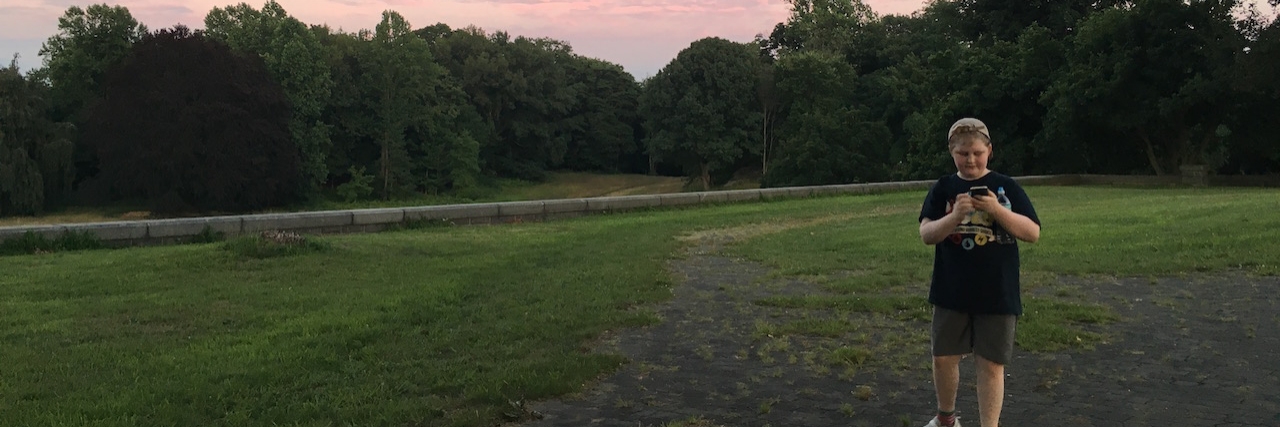A week ago, I found my 12-year-old son researching about suicide.
For the past year, he has been in the grip of depression. I use the word “grip” intentionally. I think of this disease like a giant fist that has my child in its clutches, squeezing the desire to live out of him. Occasionally, due to an adjustment in medication or some other factor that is harder to pinpoint, the fist will momentarily release its grasp. I’ll get a glimpse of the kid I used to know hiding inside that dark cocoon, infectious giggling, a smile that can light up a room.
That kid has been something of a rarity over the past few months. More often, I spend my days trying to pry those tight fingers loose and free my child from his mental prison. My efforts are frequently greeted with rage or total withdrawal.
I hate roller coasters, but it feels a bit like I’ve been living on one since last summer. It’s very hard not knowing what is around the next bend.
Being the parent of a tween with depression is isolating. There’s a common misconception that he is too young to be afflicted with mental illness. We’ve encountered staring, judgment and people choosing to keep their own kids away from our son. We find ourselves constantly defending our choices regarding medication and schooling.
When you live with someone who is depressed, you pick your battles. Sometimes it’s easier to let them hide in their room all day. Sometimes when your offer of a walk, playing a game or going out for ice cream has been rejected for the one hundredth time, you stop asking.
In the past week, something has captured my child’s attention. Something has caused him to respond enthusiastically to the offer of a walk or car ride. Something has him eager to get dressed and leave the house each day. Something has re-animated him. That something is Pokémon Go.
He’s been interested in Pokémon for several years, and we have a large collection of associated merchandise, toys, cards and video games. Yet, the beauty of this latest incarnation is that it requires you to leave the house. Sure, you’re still looking at your phone as you try to capture these elusive creatures, but it takes a certain amount of actual movement to hatch the eggs inside the game. My son’s natural inclination toward being a couch potato has suddenly been overruled by a desire to rack up enough kilometers of movement to add to his collection of pocket monsters.
Once I’ve got him outside, it’s easier to point out other items of interest he’s been missing in his past few months of housebound inertia. We’ve seen deer, fireflies and sunsets. We’ve chugged bottles of water and huddled together over car air conditioning units as we planned our next hunt. We’ve shared hugs and jokes. We’ve had conversations with other players. We’ve bonded.
As with any new phenomenon, Pokémon Go has its share of detractors. My Facebook newsfeed is full of horror stories of robbers or child predators using the game to lure potential victims to unsafe spots. There have been stories of players getting into car accidents or falling off cliffs as they search for these pesky critters.
With anything in life, you just need to put appropriate safeguards in place to mitigate the danger. He’s not alone on his missions. I am accompanying him. Since I am not playing the game myself, I am free to drive without distraction and look out for potential danger.
To me, the small amount of risk is well worth it to see that sparkle in my child’s eyes return. When he responded enthusiastically to my offer of a sunset walk, it fanned a glimmer of hope that had been lying dormant inside me for a long time. When we shared a joke in the car, I couldn’t wipe the smile off my face. When he held my hand yesterday as we walked up a hill together, I felt like my heart might burst.
Thank you, Pokémon Go, for giving me back the kid I thought I might have lost forever.
This post originally appeared on Rebecca Bell’s Facebook page.
If you or someone you know needs help, visit our suicide prevention resources page.
If you need support right now, call the Suicide Prevention Lifeline at 1-800-273-8255.

